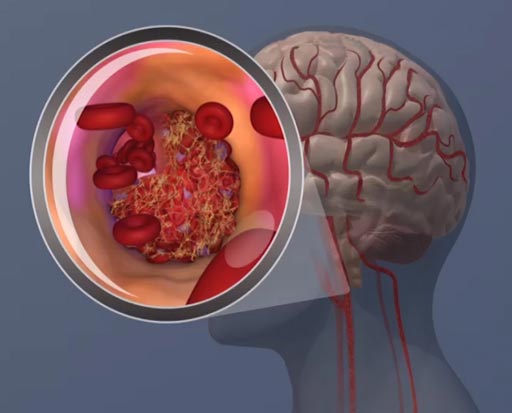Elevated Levels of Beta-2 Microglobulin Linked to Increased Stroke Risk
By LabMedica International staff writers
Posted on 22 May 2017
Beta-2 microglobulin, also known as B2M, is a component of the MHC class I molecules, which are present on all nucleated cells. They also occur on platelets, but not on red blood cells. Their function is to display peptide fragments of non-self-proteins from within the cell to cytotoxic T-cells; this will trigger an immediate response from the immune system against a particular non-self-antigen displayed with the help of an MHC class I protein.Posted on 22 May 2017
As recent studies had found associations between beta-2 microglobulin and heart disease, investigators at Harvard Medical School decided to study the association between beta-2 microglobulin and ischemic stroke.

Image: Results published in a recent paper indicated that elevated levels of the protein beta-2 microglobulin in the blood were linked to an increased risk of ischemic stroke among women (Photo courtesy of the AHA).
The investigators measured B2M levels in 473 ischemic strokes cases confirmed by medical record review and in 473 controls matched 1:1 to the cases on age, race, date of blood collection, menopausal status, postmenopausal hormone use, and smoking status. The subjects were women with an average age of 61 who provided blood samples between 1989 and 1990 and who had no history of stroke or cancer. Participants completed questionnaires about their lifestyle and medical history every two years. The investigators analyzed the association between B2M and ischemic stroke using multivariable conditional logistic regression to adjust for traditional stroke risk factors.
Results revealed that participants who later had an ischemic stroke had higher levels of beta-2 microglobulin than those who did not have a stroke. The average level of the protein was 1.86 milligrams per liter in those who had ischemic strokes, compared to 1.80 milligrams per liter in those who did not have a stroke. Those in the highest quarter of beta-2 microglobulin levels were 56% more likely to have a stroke than those in the bottom quarter. In the top quarter, 163 of the 283 women had strokes, compared to 106 of the 227 women in the bottom quarter.
“Recent studies have found associations between beta-2 microglobulin and heart disease,” said first author Dr. Pamela Rist, instructor in medicine and epidemiology at Harvard Medical School. “However, less is known about the association between beta-2 microglobulin and ischemic stroke. Given the high rate of disability from stroke, it is important to identify people who may be at higher risk of this disease. This protein could be a marker that might help us in the fight against stroke. Further studies are needed to determine if beta-2 microglobulin levels can be modified through lifestyle changes.”
The study was published in the May 10, 2017, online issue of the journal Neurology.














